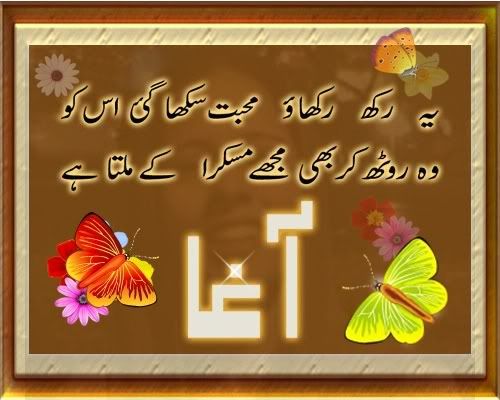Perhaps you have noticed that it can be challenging to collaborate with people sometimes? This might tempt you to feel resentful toward them. Unfortunately, resentment keeps you looking back to the past with a narrow and negative view, preventing you from using a very important collaboration skill called “observation power”. The ability to observe people and situations from multiple angles is key to being able to manage challenging situations.
Collaborating with others can be challenging because people are complex and tend to possess contradictions of some goodness mixed in with some room for improvement. Your good natured spouse may have a volatile temper at times; the leader may be inspiring but lack organizational skills; your considerate friend may be habitually late.
The Problem With Resentment
Often, resentment is an emotional byproduct of a dissatisfying outcome. Resentment can severely limit effective problem solving because it is myopic in what it sees, breeds misinformation, and blinds you from seeing the bigger picture.
Resentment becomes myopic by over-focusing on the negative aspects of a situation or person. Situations that are defined by what went wrong, who was wrong, and who was wronged are almost never resolved through this narrow outlook. Resentment breeds misinformation it reduces people to one or two negative aspect. This oversimplifies and misdiagnoses situations that have complex layers of issues. Therefore, you can ignore many important facts and not see the bigger picture.
Because resentment is often a first response to challenges, you may need to first be willing to mentally release your clutch on the negative view, to let go of what you think you see, just for awhile. By temporarily letting go of your current interpretation, your mind is not so negatively stimulated and protective of your welfare. This act alone can create the mental space necessary for you to broaden your view and receive important information.
Observation Power
Observing is much like a camera lens in that you can look at things from a broad panoramic view that includes side issues, or zoom in to look at details, or neutrally scan the picture for facts, without interpretation, as a detached observer. Shifting your view to see a range of perspectives allows you look for clues that are not necessarily obvious at first glance.
For instance, when you look at a grumpy and irritating person, zoom in to what they are saying. Do they really have something valid to say and are just making it hard to listen? From your panoramic perspective, in what situations could the rigid and rule bound person have a big heart? What could be their positive intention, even though you are deeply dissatisfied with their behavior? You can also shift your perspective when you switch your focus away from “who” is bothering you to “what” it is bothering you about the situation. Or, you can turn your observation power inward and ask yourself, “What does this situation represent for me?” Often, shifting the focus away from others and toward yourself can be a catalyst for new insights to emerge.
Whatever the challenge, your ability to observe, or “see” a situation from many points of view allows you to gather more relevant information. The more information you have, the more options you can see for resolving a challenge. The more that you can see the more you will notice the positive choices that are waiting for you.
Collaborating with others can be challenging because people are complex and tend to possess contradictions of some goodness mixed in with some room for improvement. Your good natured spouse may have a volatile temper at times; the leader may be inspiring but lack organizational skills; your considerate friend may be habitually late.
The Problem With Resentment
Often, resentment is an emotional byproduct of a dissatisfying outcome. Resentment can severely limit effective problem solving because it is myopic in what it sees, breeds misinformation, and blinds you from seeing the bigger picture.
Resentment becomes myopic by over-focusing on the negative aspects of a situation or person. Situations that are defined by what went wrong, who was wrong, and who was wronged are almost never resolved through this narrow outlook. Resentment breeds misinformation it reduces people to one or two negative aspect. This oversimplifies and misdiagnoses situations that have complex layers of issues. Therefore, you can ignore many important facts and not see the bigger picture.
Because resentment is often a first response to challenges, you may need to first be willing to mentally release your clutch on the negative view, to let go of what you think you see, just for awhile. By temporarily letting go of your current interpretation, your mind is not so negatively stimulated and protective of your welfare. This act alone can create the mental space necessary for you to broaden your view and receive important information.
Observation Power
Observing is much like a camera lens in that you can look at things from a broad panoramic view that includes side issues, or zoom in to look at details, or neutrally scan the picture for facts, without interpretation, as a detached observer. Shifting your view to see a range of perspectives allows you look for clues that are not necessarily obvious at first glance.
For instance, when you look at a grumpy and irritating person, zoom in to what they are saying. Do they really have something valid to say and are just making it hard to listen? From your panoramic perspective, in what situations could the rigid and rule bound person have a big heart? What could be their positive intention, even though you are deeply dissatisfied with their behavior? You can also shift your perspective when you switch your focus away from “who” is bothering you to “what” it is bothering you about the situation. Or, you can turn your observation power inward and ask yourself, “What does this situation represent for me?” Often, shifting the focus away from others and toward yourself can be a catalyst for new insights to emerge.
Whatever the challenge, your ability to observe, or “see” a situation from many points of view allows you to gather more relevant information. The more information you have, the more options you can see for resolving a challenge. The more that you can see the more you will notice the positive choices that are waiting for you.





Comment